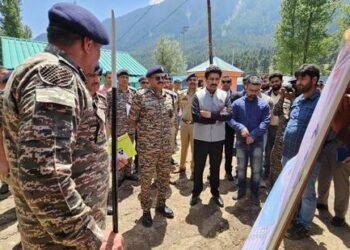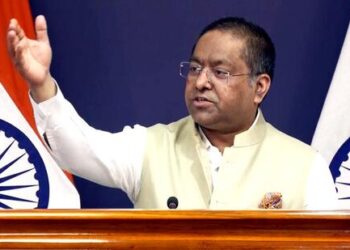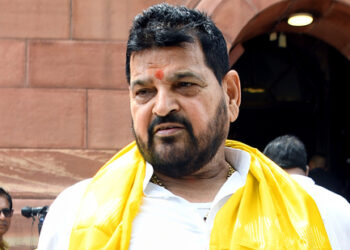Delhi is set to witness a transformative day on Sunday, January 5, as Prime Minister Narendra Modi will unveil a series of landmark infrastructure and development projects worth over ₹12,200 crore. These initiatives aim to bolster connectivity, improve healthcare infrastructure, and enhance the quality of life for millions, marking a significant milestone in the city’s growth trajectory ahead of the upcoming assembly elections.
A standout among the projects is the inauguration of a 13-kilometer stretch of the Delhi-Ghaziabad-Meerut Namo Bharat Rapid Rail Transit System (RRTS) corridor. This section, built at a cost of ₹4,600 crore, links Sahibabad in Ghaziabad, Uttar Pradesh, with New Ashok Nagar in Delhi. It represents the first step in extending the Namo Bharat high-speed rail network into the national capital. According to a government press release, the corridor promises to “significantly ease travel between Delhi and Meerut,” offering high-speed, comfortable, and reliable connectivity that will benefit millions of daily commuters.
In addition to the rapid rail corridor, PM Modi will also inaugurate a 2.8-kilometer stretch of the Delhi Metro Phase-IV connecting Janakpuri and Krishna Park. This project, valued at approximately ₹1,200 crore, is expected to enhance metro connectivity in West Delhi. Furthermore, the Prime Minister will lay the foundation stone for the ambitious Rithala-Kundli section of Delhi Metro Phase-IV. Spanning 26.5 kilometers and costing ₹6,230 crore, this section will extend the metro’s red line to improve access to key residential, commercial, and industrial zones in areas such as Rohini, Bawana, Narela, and Kundli, benefiting the northwestern regions of Delhi and parts of Haryana.
In the healthcare sector, PM Modi will inaugurate a new “state-of-the-art” building for the Central Ayurveda Research Institute (CARI) in Rohini. The modern campus, built at a cost of ₹185 crore, is designed to provide seamless healthcare and research facilities. It features an administrative block, outpatient and inpatient departments, and a specialized treatment block, reflecting the government’s commitment to advancing traditional medicine and integrated healthcare.
The scheduled inaugurations and foundation stone ceremonies underscore the government’s focus on improving urban infrastructure and public amenities. With projects spanning transportation, healthcare, and regional development, January 5 marks a pivotal day for Delhi’s growth story.








 India
India












